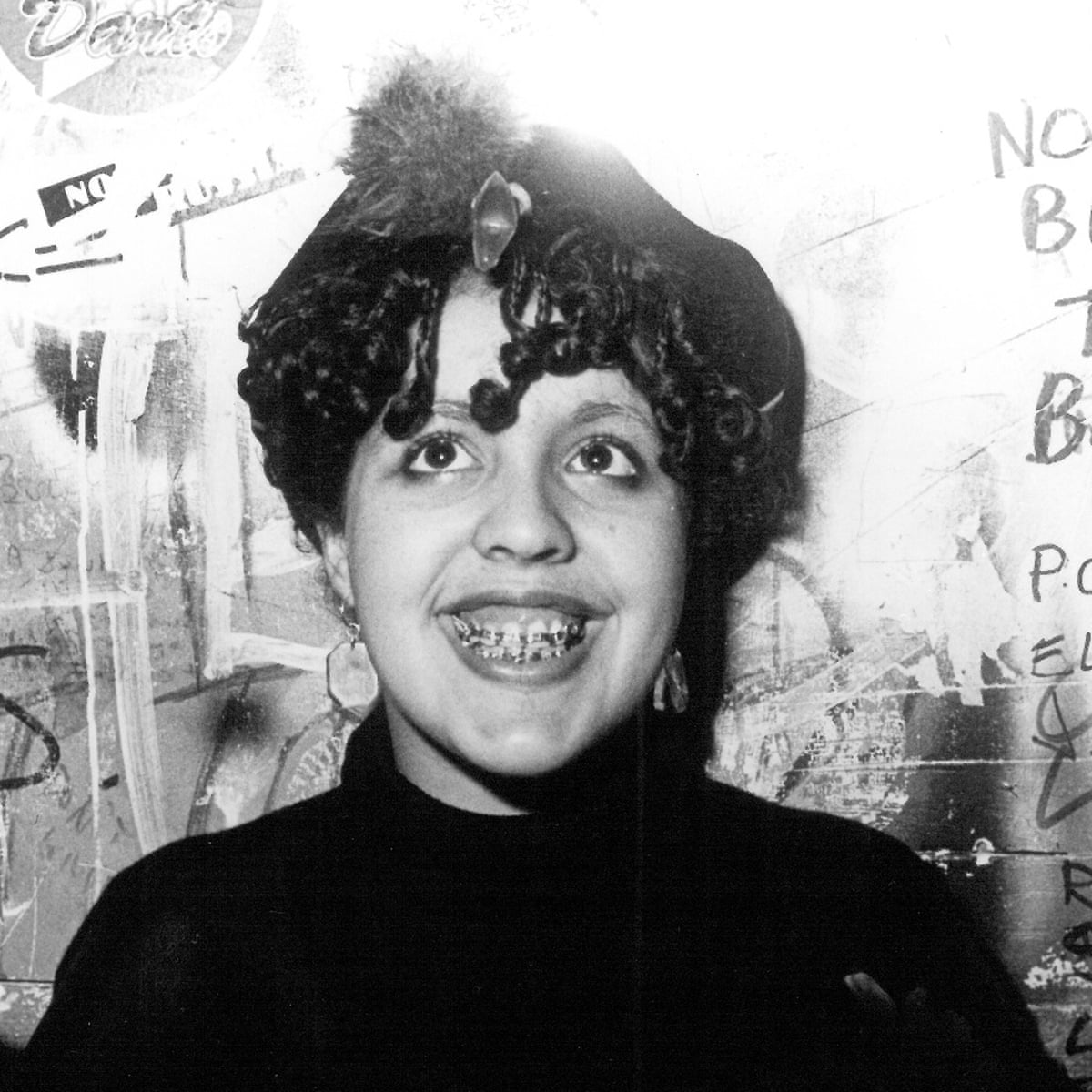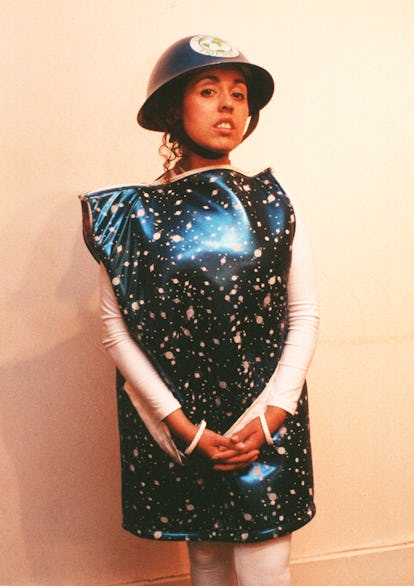Poly Styrene
Poly Styrene

Marianne Joan Elliott-Said, born on July 3, 1957, and passing away on April 25, 2011, was known professionally by her stage name Poly Styrene. She was an English musician, singer-songwriter, and the frontwoman for the punk rock band X-Ray Spex.
Poly Styrene, originally named Marianne Joan Elliott-Said, was born in 1957 in Bromley, Kent, and raised in Brixton, London. Raised by her mother, who was a Scottish-Irish legal secretary, Poly Styrene's father was a Somali-born dock worker, although she often told the press that he was a dispossessed Somali aristocrat.
During her teenage years, Styrene identified as a hippie. At the age of 15, she ran away from home with only £3 in her pocket, hitchhiking from one music festival to another and staying at hippie crash pads. Her adventure came to an end when she stepped on a rusty nail while bathing in a stream and had to be treated for sepsis.
After being an itinerant traveler, alternative fashion designer, and unsuccessful pop-reggae singer, Styrene was inspired to form the punk band X-Ray Spex after seeing the Sex Pistols perform on her nineteenth birthday on July 3, 1976, at the Pier Pavilion in Hastings.
Poly Styrene recorded her first demo album in 1975 at the age of 18, with Ted Bunting enlisted as the producer by her manager.
In 1976, she released her first single under her birth name, Mari Elliott. The single was titled "Silly Billy" and featured a reggae sound with elements of ska, similar to the style of Althea and Donna, according to her daughter Celeste. The B-side of the single, titled "What a Way," was co-written by Styrene and the record's producer, Falcon Stuart. The single was released in a GTO Records sleeve.

After witnessing an early performance by the Sex Pistols in an empty hall on Hastings Pier, where they played cover songs, Styrene was inspired to place an advertisement in music papers seeking "young punx who want to stick it together" to form a band. This led to the formation of X-Ray Spex, with Styrene adopting the stage name Poly Styrene, which she chose from the Yellow Pages while looking for a name that reflected the spirit of the time.
Described by Billboard as the "archetype for the modern-day feminist punk," Styrene challenged conventional norms by wearing dental braces, rejecting the stereotypical female sex object image of the 1970s, donning vibrant Dayglo clothing, and being of mixed race. She was regarded as one of the most unconventional frontpersons in rock history, regardless of gender. X-Ray Spex released their debut single in 1977.
In 1978, after a concert in Doncaster, South Yorkshire, Styrene experienced a vision of a pink light in the sky and felt objects crackling when she touched them. Concerned, her mother took her to the hospital, where Styrene was misdiagnosed with schizophrenia, forcibly admitted under the Mental Health Act, and told she would never be able to work again. However, she was later correctly diagnosed with bipolar disorder in 1991.
After the original lineup of X-Ray Spex disbanded in 1979, Poly Styrene embarked on a solo career. She released her solo album, Translucence, in 1980, which departed from X-Ray Spex's punk sound, opting for a quieter, more jazzy style. In 1986, she released the EP God's & Godesses on the Awesome record label, followed by the New Age solo album Flower Aeroplane in 2004. Styrene described herself as an observer, not a suffering artist, and her songwriting was characterized by playing with words and ideas, often with a humorous approach.
In 2007, Styrene was invited to the Concrete Jungle festival, where she agreed to celebrate the 30th anniversary of X-Ray Spex's debut album, Germfree Adolescents. This celebration included a sold-out live show at the Camden Roundhouse in 2008, which was later released as a live album/DVD. Styrene also made guest appearances at various events, including the 2008 Rock Against Racism concert in London.
In March 2009, Styrene joined other members of PRS for Music in criticizing Google for allegedly not paying fair royalties to musicians.
Styrene announced her solo album Generation Indigo, produced by Martin Glover (Youth from Killing Joke), in October 2010. The album was released in March 2011 to critical acclaim, receiving a perfect score in Artrocker magazine and positive reviews from other publications. Tragically, Styrene passed away on April 25, 2011, just one day after the album's release in the United States.
Posthumously, the single "Ghoulish" was released from Generation Indigo, featuring a remix from Hercules and Love Affair. Styrene's unique singing style was described as a bold, keening yelp, both fierce and fiercely feminine.
In recognition of her contributions to music, U2 paid tribute to Styrene during a performance of "Ultraviolet (Light My Way)" in 2017, and in 2023, Rolling Stone ranked her at number 195 on its list of the 200 Greatest Singers of All Time.
References
- "Punk icon Poly Styrene dies at 53". BBC News. 26 April 2011. Retrieved 26 April 2011.
- a b Nissim, Mayer (26 April 2011). "Punk star Poly Styrene dies, aged 53". Digital Spy. Retrieved 3 November 2018.
- ^ Sweeting, Adam (26 April 2011). "Poly Styrene obituary". The Guardian.
- ^ "Music Obituaries: Poly Styrene". The Daily Telegraph. 26 April 2011. Retrieved 3 November 2018.
- a b c d e "The return of punk's first lady". The Independent. 21 November 2008. Archived from the original on 11 February 2011.
- ^ Kennedy, Lisa (3 February 2022). "'Poly Styrene: I Am a Cliché' Review: An Overdue Close-up". The New York Times. ISSN 0362-4331. Retrieved 20 January 2023.
- ^ "Omnibus Press". Facebook.com. Archived from the original on 26 February 2022. Retrieved 10 May 2020.











































